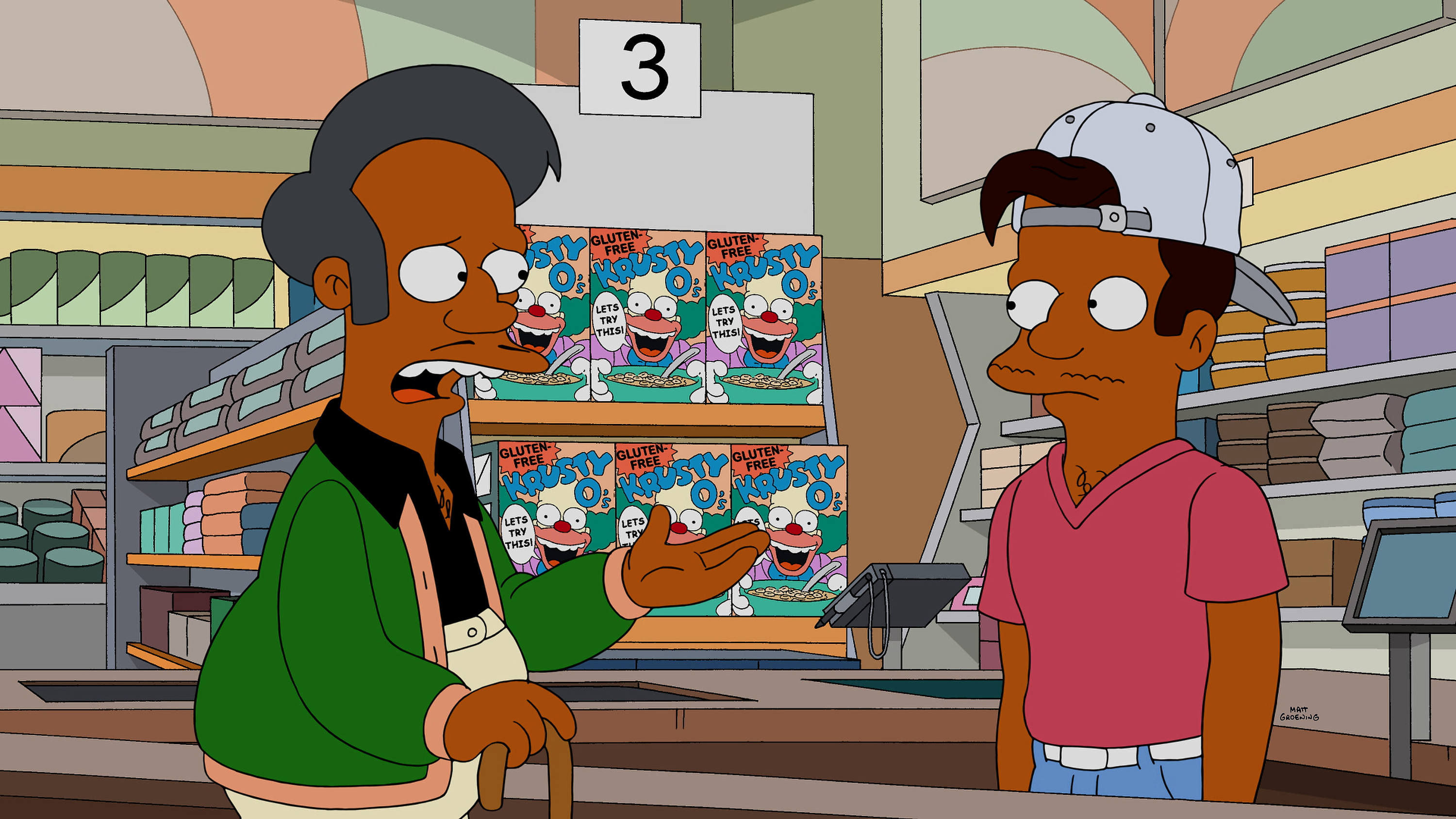
Source: FOX / Getty
Finally, we’re getting somewhere with the ongoing conversation about a beloved, but a problematic character on The Simpsons: Apu.
On The Late Show With Stephen Colbert Tuesday night, Hank Azaria addressed the controversy about his Simpsons character, Apu Nahasapeemapetilon. He ultimately said that after a lot of thought, he’s willing to step down from voicing the character who’s caused a lot of pain for South Asian audiences.
“I’m perfectly happy to step aside or help transition it into something new,” he said. “It feels like the right thing to do … The most important thing is that we need to listen to South Asian people in this country when they talk about what they feel and how they think about this character and what the American experience has been.”
While the controversy and tension surrounding the character have always existed, it was highlighted with Hari Kondabolu’s recent 2017 doc, The Problem with Apu. When the documentary was in development, Kondabolu was adamant about reaching out to Azaria for comment, but Azaria refused to meet with the filmmaker. He also spoke with South Asian comedians such as Aziz Ansari, Kal Penn, Aasif Mandvi, and more about their complicated relationship with the character. Many of them dealt with racial stereotypes as a result of Apu’s portrayal on television.
“I hate Apu,” Kal Penn says in the film. “And because of that, I hate The Simpsons.”
And Azaria mentioned to Colbert that is exactly what he wants to change about the character— taking out the stereotypes and bringing actual South Asian people into the room to rebuild him.
“In television terms, the inclusion of voices means inclusion in the writer’s room,” he said. “I really want to see Indian, South Asian writers in the writer’s room. Not in a token way, but informing the new direction this character might take.”
While it’s fantastic that Azaria is finally speaking out and ready to do work in making it right, it still begs the question of whether or not there will be a conversation between the South Asian man who started the dialogue and the white man behind the stereotypical character. Regardless, it’s important to give credit where it’s due — so props to Hari for starting the conversation.
















